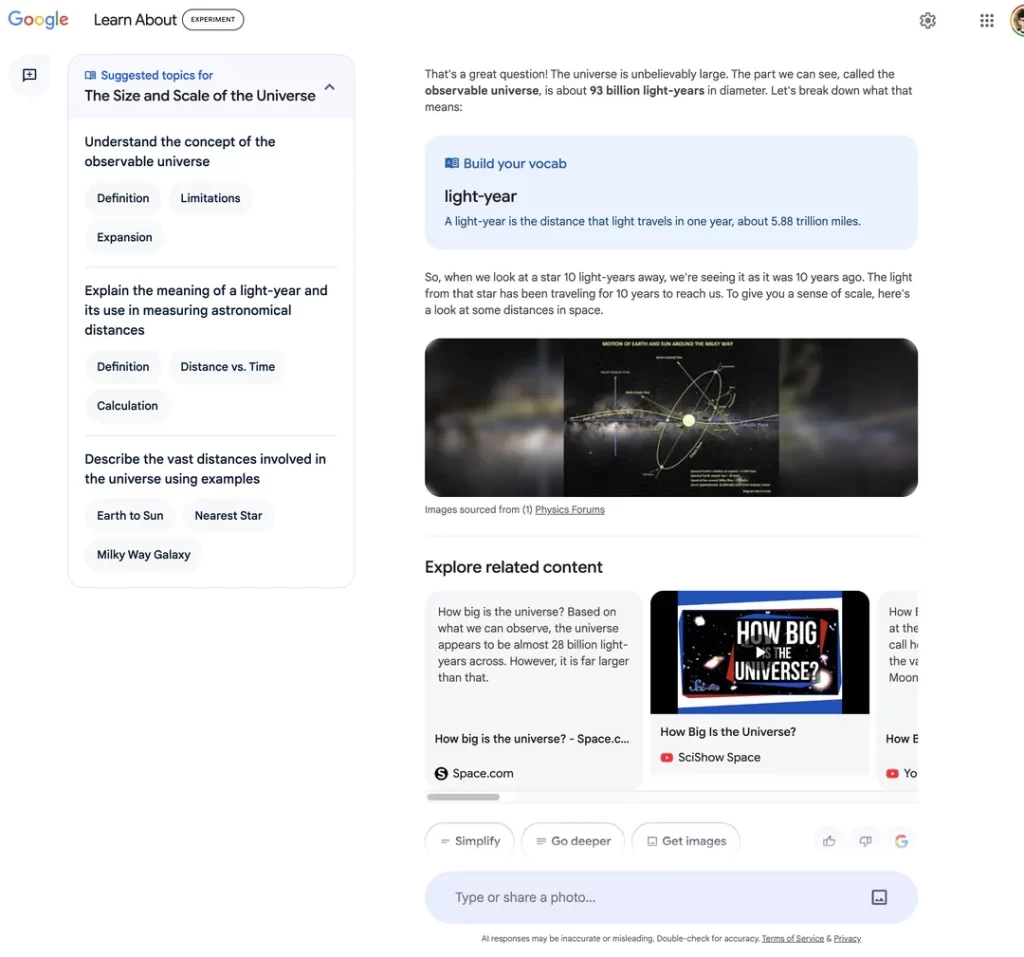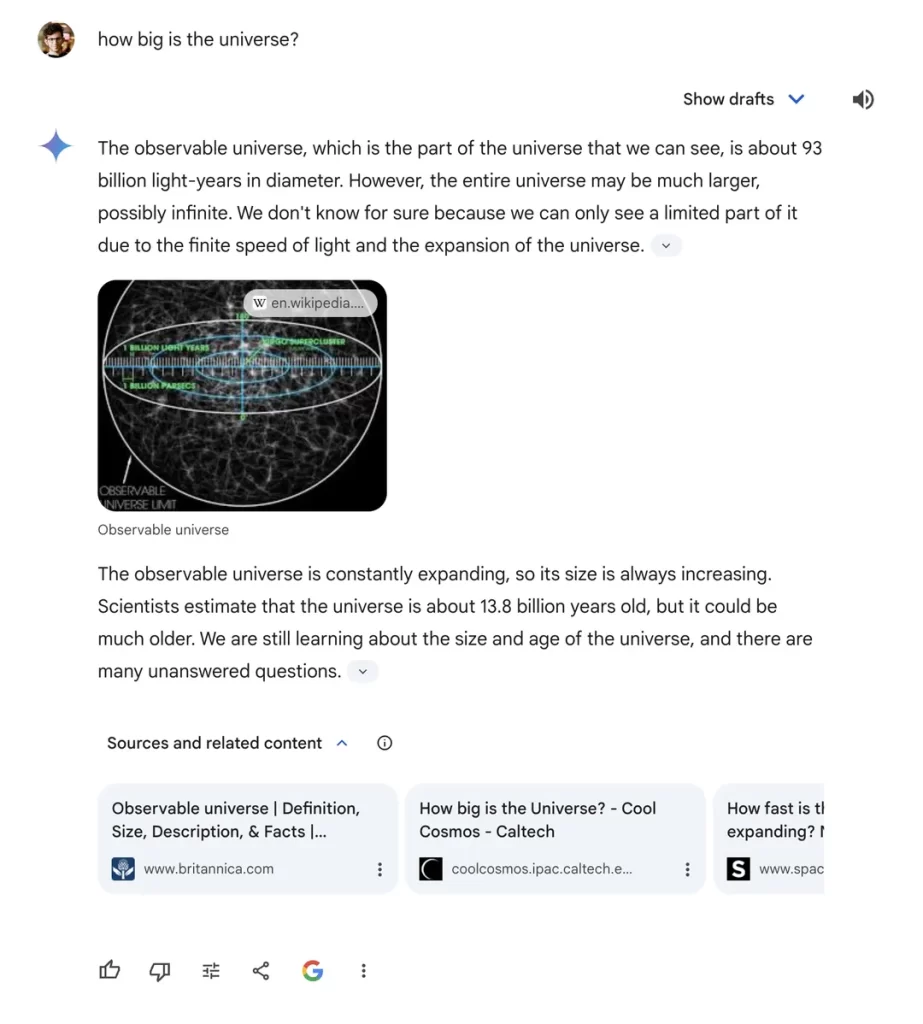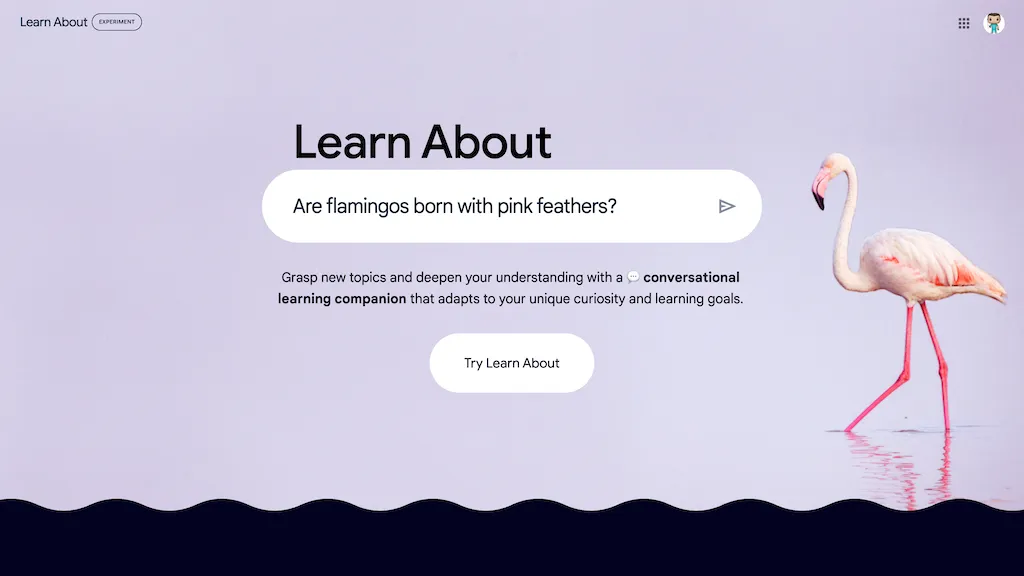Google has just launched a groundbreaking AI tool called Learn About, designed to elevate the way we engage with information online. Unlike traditional AI chatbots like Gemini or ChatGPT, which focus primarily on conversational or straightforward answers, Learn About aims to provide more structured, textbook-style educational responses. Built on Google’s LearnLM model, the tool is focused on enriching the learning experience with interactive and visual elements that make complex topics more accessible and easier to understand.
A New Approach to AI-Powered Learning
Learn About stands apart from other AI models by offering in-depth, educationally grounded responses that go beyond simple facts. It’s specifically tailored to enhance the learning process by drawing on educational research, with an emphasis on clarity, context, and engagement. Instead of providing just a short answer to a question, Learn About breaks down topics into digestible sections, often accompanied by images, links to related content, and even vocabulary-building elements.
In a test using the prompt “How big is the universe?”, Learn About gave a precise answer, noting that the “observable universe” spans about 93 billion light-years in diameter. However, unlike a typical chatbot response, it went further by incorporating visual elements and additional context, such as “why it matters” sections and vocabulary boxes. It also provided a list of related topics and educational resources for continued exploration.
Educational, Interactive Responses
The key distinction of Learn About lies in its educational format. For example, when asked the same question about the size of the universe, Google’s other AI tool, Gemini, provided a concise answer along with a Wikipedia diagram and a brief summary. While Gemini’s response was factual, it felt more like a direct answer, with external links for further reading.
In contrast, Learn About included an image from Physics Forums, a reputable educational site, and presented a more structured, textbook-style response. The tool highlighted key vocabulary words, offered related videos, and encouraged users to explore adjacent topics. In this way, Learn About is not just answering a query—it’s creating a mini-lesson designed to expand your understanding and spark curiosity about related subjects.
For instance, if you ask Learn About something more whimsical, like “What’s the best kind of glue to put on a pizza?”, it will give you an informative answer, as well as a disclaimer pointing out the “common misconception” that some people might actually think it’s a good idea to use glue. The response offers both humor and clarity, making it not only educational but also entertaining.


Screenshot: Jake Kastrenakes
Enhancing the Learning Journey
One of the standout features of Learn About is its ability to suggest follow-up topics based on the user’s inquiry. This dynamic approach is aimed at creating a learning pathway, where users can easily navigate from one subject to another. For example, after answering a question about the universe, Learn About might recommend further reading about the Big Bang Theory, black holes, or even cosmology—ensuring that learners continue to build upon their knowledge.
In addition to this, Learn About introduces educational tools such as vocabulary builders, which define key terms and concepts that appear in the responses. This feature is especially beneficial for learners unfamiliar with scientific jargon or those looking to deepen their understanding of specific subjects.
Testing the Limits of AI in Education
While Learn About is still in the experimental phase, it’s clear that Google is pushing the boundaries of what AI can do in terms of education. By moving beyond the simple Q&A style of traditional chatbots, Google’s new tool aims to immerse users in more comprehensive and meaningful learning experiences. The tool’s use of visual aids, related content, and interactive elements makes it feel more like an educational assistant than just an AI chatbot.
For example, when users ask specific questions, Learn About not only provides the correct answer but also clarifies why the answer is important. In the case of the pizza glue query, it goes beyond just correcting the misconception; it explains why glue on pizza is not safe, fostering a more critical thinking approach to everyday decisions.
Conclusion
Google’s Learn About is an exciting development in the world of educational AI. By combining interactive, textbook-style responses with visual aids and personalized learning pathways, it offers an experience far richer than traditional chatbots. While tools like Gemini excel at delivering quick facts, Learn About aims to provide users with a deeper, more enriching learning journey. With its focus on vocabulary-building, contextual information, and follow-up topics, Learn About is set to be a powerful tool for anyone eager to explore new subjects, whether for school, work, or personal curiosity.
As Google continues to refine this experimental tool, it could very well shape the future of how we use AI for self-directed learning, bringing more structure and interactivity to the way we seek and engage with knowledge online.

